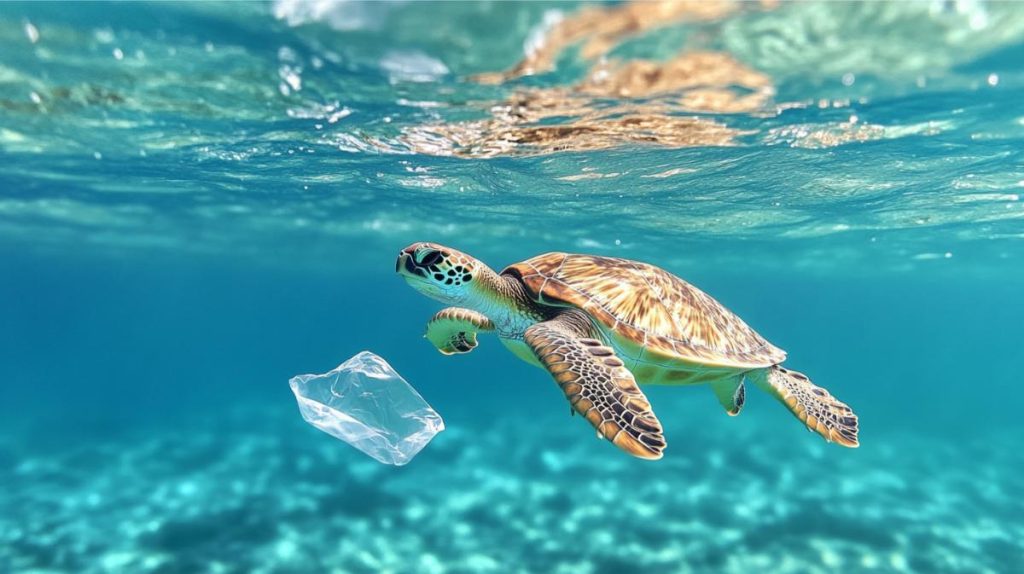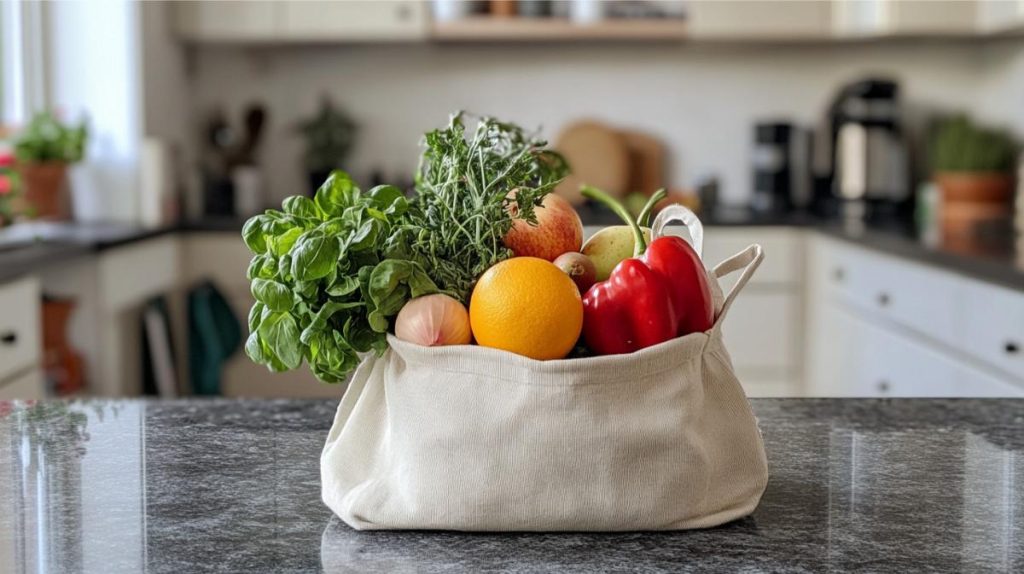Plastic has become a big problem for our planet. It’s everywhere, from our oceans to our landfills, hurting animals and the environment.
Eco-friendly alternatives to plastics can help save our planet and its creatures.
You might be wondering, “What can I do to help?”
Well, you’re in luck! There are many simple swaps you can make in your daily life to cut down on plastic use.
From reusable shopping bags to bar soaps, these changes are easy and can make a big difference.
Ready to join the plastic-free movement?
Let’s take a look at some fun and creative ways to ditch plastic and embrace a greener lifestyle. Your choices can help create a cleaner, healthier world for everyone.
Key Takeaways
- Plastic pollution harms our planet and its creatures.
- You can make simple swaps in your daily life to reduce plastic use.
- Choosing eco-friendly alternatives helps create a more sustainable future.
Understanding the Plastic Predicament

Plastic has become a major problem for our planet. It harms wildlife, pollutes oceans, and takes centuries to break down.
Let’s dive into why plastic is such a big deal and what happens when we try to get rid of it.
The Perils of Plastic Pollution
You’ve probably seen those heartbreaking images of sea turtles tangled in plastic bags. Sadly, that’s just the tip of the iceberg.
Plastic waste is wreaking havoc on our oceans, and it’s not just the big pieces causing trouble.
Microplastics, those tiny plastic bits, are everywhere! They’re in your food, your water, and even the air you breathe. Yikes!
These sneaky little particles are messing with marine life and might even be affecting your health.
But wait, there’s more!
Plastic production is a major contributor to your carbon footprint. Every plastic item you use adds to the problem.
Single-use plastics are especially naughty – think straws, cutlery, and those pesky grocery bags.
Beyond the Bin: The Recycling Reality
You’ve been dutifully tossing your plastics in the recycling bin, feeling like an eco-warrior. But here’s the kicker: only a tiny fraction of plastic actually gets recycled. Most of it ends up in landfills or, worse, the ocean. Talk about a plot twist!
So, what’s the deal?
Recycling plastic is tricky and expensive. Different types of plastic can’t be mixed, and food contamination is a real party pooper.
Plus, many countries have stopped accepting our plastic waste. Oops!
But don’t give up! There are reasonable alternatives:
- Biodegradable and compostable packaging
- Reusable bags and containers
- Sustainable materials like bamboo or hemp
You can make a real difference by choosing these options and reducing your plastic use. Every little bit helps!
Creative Conservation: Alternatives to Embrace

Going green isn’t just a trend – it’s a lifestyle that can make a real difference.
By swapping out everyday items for eco-friendly options, you can reduce your plastic footprint and help protect our planet’s precious resources.
From Plastic to Fantastic: Everyday Alternatives
Say goodbye to single-use plastics and hello to a world of sustainable options!
Reusable shopping bags are a great start. Keep a few in your car or by the front door so you never forget them.
Ditch plastic water bottles for stylish stainless steel ones. They’ll keep your drinks cold (or hot) for hours and look great doing it.
For food storage, try silicone bags or beeswax wraps. They’re flexible, reusable, and way cuter than boring old plastic wrap.
In the bathroom, bamboo toothbrushes are all the rage. They’re biodegradable and give you that eco-warrior smile.
Wearing Green: Sustainable Fabrics and Fashion
Your wardrobe can be a force for good!
Organic cotton is soft, comfy, and grown without harmful pesticides. It’s like a hug for your skin and the environment.
Natural fiber clothes, like linen and hemp, are breathable and long-lasting. Plus, they get softer with each wash – talk about aging gracefully!
Look for brands using innovative materials like mycelium (mushroom leather) or seaweed-based fabrics. They’re pushing the boundaries of sustainable fashion.
When shopping, choose quality over quantity. A well-made piece will last years, reducing waste and saving you money in the long run.
Rethinking Daily Routines: Eco-Friendly Personal Care
Your bathroom can be a plastic-free zone!
Swap liquid soap for package-free bars. They last longer and often contain fewer harsh chemicals.
Try shampoo and conditioner bars. They’re concentrated, travel-friendly, and leave your hair feeling fabulous.
For the ladies, consider reusable menstrual products like cups or period underwear. They’re better for your body and the planet.
Bamboo cotton swabs and compostable dental floss are small changes that add up. Every little bit helps in the fight against plastic waste!
Kitchen Conversions: Cooking Up a Plastic-Free Space
Your kitchen is ripe for an eco-makeover! Replace plastic containers with glass or stainless steel. They’re durable, don’t absorb odors, and look great in your fridge.
Swap plastic wrap for beeswax wraps or silicone lids. They’re flexible, reusable, and come in fun patterns.
Ditch disposable coffee filters for a reusable one. Your morning brew will taste better knowing it’s not creating unnecessary waste.
For cleaning, microfiber cloths and cellulose sponges are washable alternatives to paper towels. They’ll keep your kitchen sparkling without clogging landfills.
